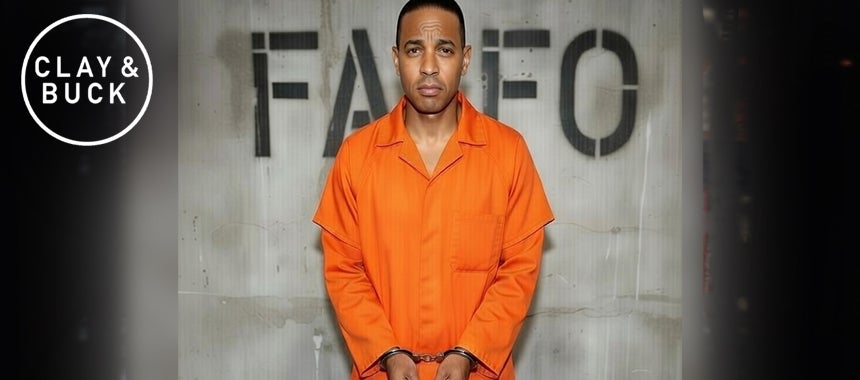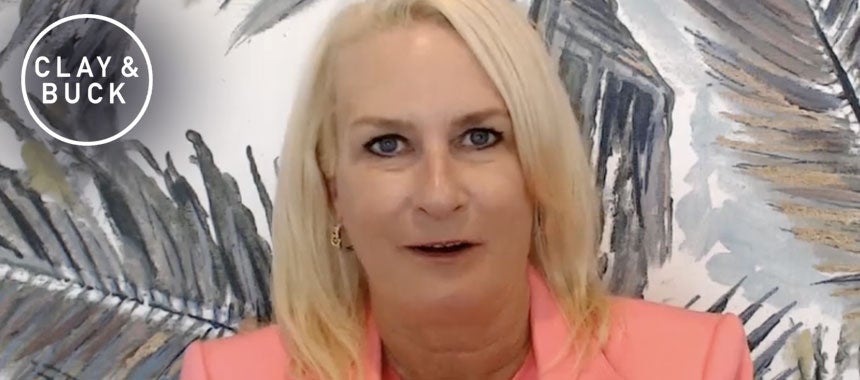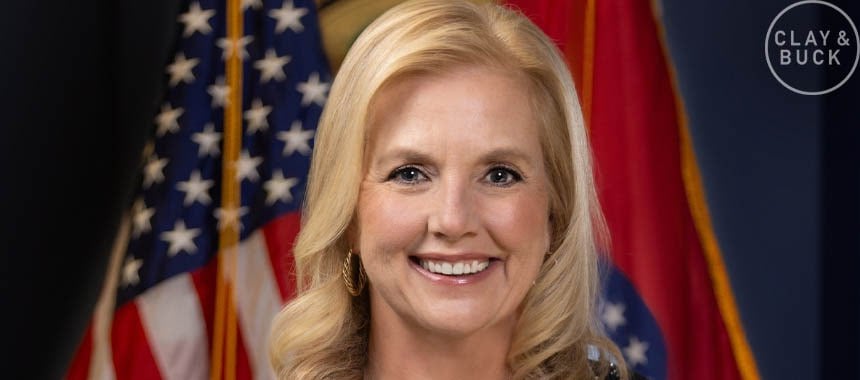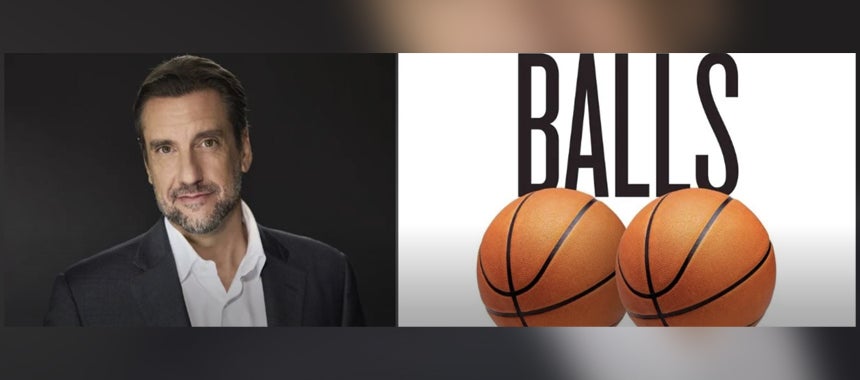Dr. Makary: The Credibility of Public Health Has Been Shot
20 Dec 2021
BUCK: Dr. Marty Makary is with us now, Johns Hopkins professor, editor-in-chief of MedPage Today and author of the New York Times best-seller The Price We Pay. Dr. Makary, great to have you back.
DR. MAKARY: Good to be with you, Buck.
BUCK: What’s going on? We’ve got cases all across the country. We got lines of hundreds of people at testing sites all over the city and folks going on TV saying, “I’m sick, but I was vaccinated. I don’t understand.” How is this such a surprise to so many people?
DR. MAKARY: Well, we’ve got two different things happening. One is Omicron and the South African doctors who first described it said early on, don’t panic over this, and now they’re saying, we we told you not to panic. It’s pretty clear it’s mild. It doesn’t affect the deep lung tissue nearly as well. It’s superficial. It’s the common cold. So that’s running through the country. And if you were sitting in any doctor’s office and I said you’re probably gonna get the common cold this winter, you’d say hmm, okay. You know, it wouldn’t be — it wouldn’t be Armageddon.
Separate from that we have Delta infecting nonimmune adults and some unboosted seniors and they’re showing up in the hospital. That’s a very separate thing. And that’s very localized, it’s very confined.
BUCK: So what do you make of the policies that are under discussion right now and are you concerned, Doc, that going forward we could see a resumption of either capacity restrictions in places like New York, maybe California, other Northeastern states, possible lockdowns again for hospital capacity. It feels like for a lot of us we are back in a place that we were told we would never be in and this is after extreme measures were taken in recent months to get as many people as possible to get the shot.
‘It is embarrassing’: CDC struggles to track covid cases as Omicron looms https://t.co/KkpaXMS1Dg
— Marty Makary MD, MPH (@MartyMakary) December 20, 2021
DR. MAKARY: It’s as if we have not learned our lessons from the profound damage of social isolation. And look. I think people should be careful if they’re in an area of an active outbreak. I would be careful if there’s an active influenza outbreak in my community. But right now it is very clear that it is difficult or near impossible to contain a highly transmissible respiratory pathogen that looks like the common cold. And so what we’ve got to do is we’ve got to bring attention to early treatment, we’ve never heard about it, the doctors we hear about from the government never talk about it, we’ve gotta start talking about early treatment because it’s what we have, it’s ready to go, some of these things are already on the market.
I’m talking about Fluvoxamine, vitamin D, saline irrigation, Budesonide, which is a steroid inhaler, all of that stuff you can pick up at the pharmacy, some need a prescription. We never hear about those things. These are not things with controversies like ivermectin and hydroxy. These have a hundred percent pro, solid support of trial data. And we don’t hear about the monoclonals that work on Omicron and the Delta variant. They’re out there, but the government did not preplan well enough so we don’t have enough doses.
BUCK: Speaking to Dr. Marty Makary who’s of Johns Hopkins University medical school. He’s a professor. He’s also off of the New York Times best-seller The Price We Pay and you also hear him on Fox News talking about what we’re really facing here with covid. Dr. Makary, when you hear your general medical colleague Dr. Fauci going on TV to say that he thinks we should mask up forever on planes and the same week essentially as two airline CEOs who understand the filtration systems very well said they don’t really think that masking on planes does much of anything, what’s that all about? I mean, is this surprising to you?
DR. MAKARY: So the airline CEOs are not just saying that because we’re sick of masks. They’re saying it because they’ve got very good doctors advising them and they’ve basically explained how the HEPA filtration and the airflow in the airplanes makes it safest places around. Now, if Dr. Fauci wants to wear a mask for the rest of his life, he can go ahead and do that. I don’t want to live like that. We’ve got to at some point recognize that we’ve gotta move on and live our lives.
 And so what you’re seeing is this knee-jerk reflex by the government when we start seeing some cases go up, they don’t look at the hospitalization numbers as well because there’s a bit of a decoupling there. They’re not tracking with the same level of increase. And they immediately go to boosting young people, and they immediately go to masks. How about we talk about early treatment. Boosters in young people have no value. There’s no clinical data to support that.
And so what you’re seeing is this knee-jerk reflex by the government when we start seeing some cases go up, they don’t look at the hospitalization numbers as well because there’s a bit of a decoupling there. They’re not tracking with the same level of increase. And they immediately go to boosting young people, and they immediately go to masks. How about we talk about early treatment. Boosters in young people have no value. There’s no clinical data to support that.
BUCK: Yeah, you are writing about this, I know, this week in the Wall Street Journal on boosters for young people. It seems to me that they’ve got a big problem that if the public focuses in on a lot of the Fauciite believers, so to speak, are not really gonna have any satisfactory answers. One of them, Doc, has to do with getting kids the shot. It could only be explained as something that would stop spread when you look at the actual risking factor to children. But, one, we know that children tend not to spread it very much in general, and, two, even the vaccinated are spreading this. So what is really the policy justification for forcing children to go to — you know, if they’re gonna go to school they have to get the shot, to go out and eat in New York City at a restaurant, there are, you know, 6, 7, 8, 9-year-olds that have to show papers, we’re being told we have to get boosters. Where is this coming from? What data are they relying on?
DR. MAKARY: Well, they’re making up a lot of data as they go. They are actually just looking at antibody levels and not T-cell immunity, they’re ignorant natural immunity. T-cell immunity and what you get when you get vaccinated or get the infection, and it’s not that measurable, but it’s very effective.
Now, boosters in kids, just for one second ’cause I’ll have the piece coming out in the Wall Street Journal with the formal scientific argument in a few days, but the death rate in anyone under age 30 who’s fully vaccinated without a booster is zero. The booster is not gonna lower that any further. And so what we have now is this knee-jerk reaction which is creating a distraction, cloth masks in 2-year-olds, boosting college students as a requirement, those are not our issues. The issue is that we have public health officials using a one-hammer approach when we have a massive toolbox of options we should be using right now.
BUCK: Dr. Makary, what do you make of, you know, right now it seems the Biden administration is pretending — I don’t know what else to say — pretending like this is still just the unvaccinated that are causing the problems and that are at risk. They put out a White House statement over the weekend, “We are intent on not letting Omicron disrupt work and school for the vaccinated. You’ve done the right thing and we will get through this. For the unvaccinated you’re looking at a winter of severe illness and death for yourselves, your families, and the hospitals you may soon overwhelm.”
A really intense and accusatory statement from the White House right now at a time when fully vaccinated and boostered — Elizabeth Warren and Cory Booker and Jim Cramer, lots of folks getting and spreading this virus. So what does the data actually tell us about how effective the vaccines are at stopping the spread?
 DR. MAKARY: Well, the peak viral shedding is about the same if you’re vaccinated and unvaccinated, but the window of time that you’re contagious is shorter when you ever immunity. And I reject the whole framework that they’ve given us at the White House of the vaccinated and the unvaccinated. It’s the immune and the nonimmune because natural immunity is effective. So what we need to do is encourage high risk adults, in my opinion, to get vaccinated if they haven’t had the infectious already. But if they’ve made a poor decision — and we see that all the time in medicine with potato chips and you name it — they do so at their own individual risk. They pose no public health threat to those who have immunity in the community.
DR. MAKARY: Well, the peak viral shedding is about the same if you’re vaccinated and unvaccinated, but the window of time that you’re contagious is shorter when you ever immunity. And I reject the whole framework that they’ve given us at the White House of the vaccinated and the unvaccinated. It’s the immune and the nonimmune because natural immunity is effective. So what we need to do is encourage high risk adults, in my opinion, to get vaccinated if they haven’t had the infectious already. But if they’ve made a poor decision — and we see that all the time in medicine with potato chips and you name it — they do so at their own individual risk. They pose no public health threat to those who have immunity in the community.
BUCK: Dr. Makary, real quick before we go — and it’s Dr. Makary from Johns Hopkins University medical school, and you should all check out his book, The Price We Pay. Honest debate in science is good, as he says, and you’ll it certainly is. You’ll see it in that book. Dr. Makary, do you think that people who have been believers in the apparatus, not in the science, but in the apparatus of the health establishment at this point are finally seeing now there’s a problem here?
DR. MAKARY: Yeah. I think they’re seeing that what comes out of the CDC is often what I call medical propaganda. If you look at their Arizona study on masks, they didn’t have the — there were all kinds of problems that gave — created a false statistic, that if school districts have mask mandates, they would be 3.5 times less likely to have an outbreak. Turns out they were looking at schools that were closed, so-called virtual academies, and they were schools that were not even — didn’t even exist that they listed in the study. So it’s complete fraudulent work. I mean, it should have been be retracted yet the CDC put it out there to justify what they’re doing which is they come up with a contraction and then they go jerry-rig a study on support it. Same with their two studies on natural immunity. Both these studies conflict with everything else out there. And so what you’re seeing is the true stripes right now of political physicians who are government-appointed doctors calling the shots right now.
At the same time, there’s therapeutics. Vaccines work and I hope people don’t lose that important message, that immunity does downgrade the severity of covid and it’s good to have immunity but I’m afraid we’re losing that because the credibility of public health has been shot.
BUCK: Dr. Marty Makary, always appreciate your clearheaded analysis, sir. Thanks for being here.
DR. MAKARY: Thanks so much, Buck.
Recent Stories

Don Lemon Arrested for Minneapolis Church Attack
Clay and Buck react to the Lemon indictment -- and they have the same take.

Julie Kelly Shares J6 Parallels to the Don Lemon Indictment
Nobody but Julie Kelly will tell you that "journalists" were charged for January 6th offenses.

"Hijacked Representation": Missouri AG Explains Her Census Lawsuit
Catherine Hanaway's suit to stop the counting of illegals in the census.

VIP Video: Journalists Fly Soviet Flag at Half Staff for Don Lemon
Clay and Buck break down some of the most histrionic media reactions.

From ‘Balls’ to Broadcast: Clay Reflects on Media, Writing His New Book, and His Future
Check out Barrett Media's profile piece on Clay.





